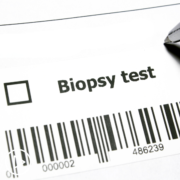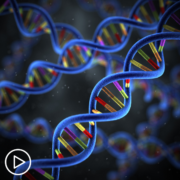Advancements in AML Treatment | Tailoring Therapies to Individual Patients
Advancements in AML Treatment | Tailoring Therapies to Individual Patients from Patient Empowerment Network on Vimeo.
What are the latest AML treatment advancements? Expert Dr. Sara Taveras Alam from UTHealth Houston discusses how treatments have advanced over recent years with personalized therapies beyond a one-size-fits-all approach.
[ACT]IVATION Tip
“…patients to be really informed about all of the details of their AML and ask questions about the genetic drivers of their disease and whether or not there are medications that can target those drivers. Similarly, the decision to do a stem cell transplant or not will be driven by this, so it’s very important for the patient to be informed about all of the details of their AML, not just the fact that they have acute myeloid leukemia diagnosis.”
Related Resources:

AML Diagnosis | Exploring Bone Marrow Biopsy and Alternatives |

|

|
Transcript:
Lisa Hatfield:
Dr. Taveras, what are the latest advancements and treatment modalities for AML?
Dr. Sara Taveras Alam:
Well, over the last decade, there have been many new medications approved for the treatment of AML, and this has really allowed for the treatment of acute myeloid leukemia to be individualized rather than using a one-size-fits-all approach, so typically for us to decide the treatment that best suits the patient, we take into consideration patient characteristics and into consideration, their age and their fitness level, other medical problems that they may have, and we also take into consideration characteristics of the leukemia itself, so not all acute myeloid leukemia are the same, and we try to get as much information as we can about what is driving the acute myeloid leukemia to see how we can best attack it.
One of the medication groups that we have available to us over the last decade are FLT3 inhibitors, and that is a class of medication that directly targets FLT3 mutations that may be present in patients with AML, and if the patient does have a FLT3 mutation and they’re able to be started on this class of medication, they do a lot better than they would have done, say, 20 years ago without those medications being available. Similarly, we have medications that target IDH mutations, IDH1 or 2 that are options for our patients. We have less intensive chemotherapy that is more appropriate for older patients with comorbidities, perhaps maybe more tolerable than the traditional IV intensive chemotherapy.
So my activation tip for this question is for patients to be really informed about all of the details of their AML and ask questions about the genetic drivers of their disease and whether or not there are medications that can target those drivers. Similarly, the decision to do a stem cell transplant or not will be driven by this, so it’s very important for the patient to be informed about all of the details of their AML, not just the fact that they have acute myeloid leukemia diagnosis.










